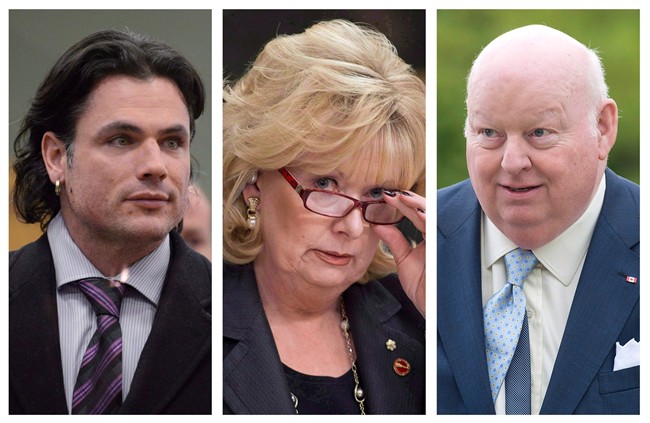OTTAWA – In an age of crack-smoking mayors and chiefs of staff cutting Senators’ cheques, it’s worth asking: Have political leaders lost our trust? Did they ever have it? Most important – do they even need it?

To a degree, yes. And to an equal degree, no.
We need to believe that politicians do what they say they’re going to do – that we can rely on them. That we can, well, trust them.
But when is that trust breached? And in the end, is it better to be skeptical as long as we are properly served?
“There has been a huge decline in trust for politicians, for media, for businesses,” says Alison Loat, executive director of Samara, a non-partisan charitable organization that focuses on improving political participation in Canada.
But Loat wonders if that may be for the better.
“Do you want 100 per cent trust – is that a good thing?” she says.
“We are an educated population, and you want people who are thinking critically and asking questions.”
Leadership – it drives business…the economy… government….but with scandal, broken promises and missed opportunities are today’s leaders letting us down?
Have Canadians lost trust in their leaders?
Join the conversation Tuesday, January 28 at 9 p.m. ET as Canadians talk leadership on the Corus radio network.
CKNW AM 980 (Vancouver) at 6 p.m. PT
News Talk 770 (Calgary) at 7 p.m. MT
630 CHED (Edmonton) at 7 p.m. MT
680 CJOB (Winnipeg) at 8 p.m. CT
AM 900 CHML (Hamilton) at 9 p.m. ET
AM980 (London) at 9 p.m. ET
Talk Radio AM640 (Toronto) at 9 p.m. ET
This is the first in a series of special conversations on-air and online about the issues that matter to all Canadians.
Nelson Wiseman, an associate professor of Canadian government at the University of Toronto, said since the 1960s there has been a decline in trust as well as voter turnout, not only in Canada but throughout the western world.
One reason, Wiseman believes, is an “ideological merging” between parties that makes policies more difficult to distinguish.
“The lines between the parties are not as sharp as they once were,” he said.
And with a more educated population than a few decades ago, Canadians are more skeptical than ever.
Political theatre such as the daily question period doesn’t have the same resonance – especially now that it’s televised.
“Now you can actually see it, and you know how powerful the visual image is. And you see this guy, and you say, ‘He sounds like a jerk. I’m smarter than that. I know he’s not answering the question. I know he’s making up all this stuff,’” Wiseman says.
“More exposure, more knowledge. People are less willing to defer.”
For his part, Wiseman isn’t concerned.
“I’m not worried about trust and politicians. I’m not sure they deserve it, because they’re actions are largely led by expediency,” he says.
Loat points to research from public relations firm Edelman, which is releasing its latest trust barometer study on Thursday.
The firm found in 2013 that countries with the highest trust levels are China, Singapore and India. Canada was No. 8, tied with Indonesia.
“I don’t think 100 per cent trust is desirable or achievable. I think an overall decline in trust isn’t ideal, but I think you’d never get complete trust,” Loat said.
“People are more satisfied than they are trusting.”
Then again, recent Samara public opinion research shows only 55 per cent of Canadians are satisfied with their democracy, down 20 points in 10 years.
Loat says the recent Senate scandal involving Mike Duffy and Nigel Wright, for instance, may feed into the notion that politicians are hypocritical, or think they are above the average person.
But the public may cut Rob Ford some slack because he’s seen as more relatable, drug admissions notwithstanding.
Another element is specifics.
“There’s a big difference between what people will say when they look at an institution, or when they look at individuals, “she says.
Loat says trust increases when people are asked about a specific person – not just government or politicians, but their MP or councillor, and what they are doing for a constituent.
But the decline is satisfaction has democracy advocates such as Loat a little worried.
“Who is responsible for upholding the quality of our democracy? And that is our elected officials, and political parties. So to me, if I were in charge of those organizations I would start to be very worried, because at some point you are going to lose the right to govern,” says Loat.
“The direction is not a good one.”
So is trust really that important, or can we settle for satisfaction?
In the end, it’s up to the people to decide.
Trust me.




Comments